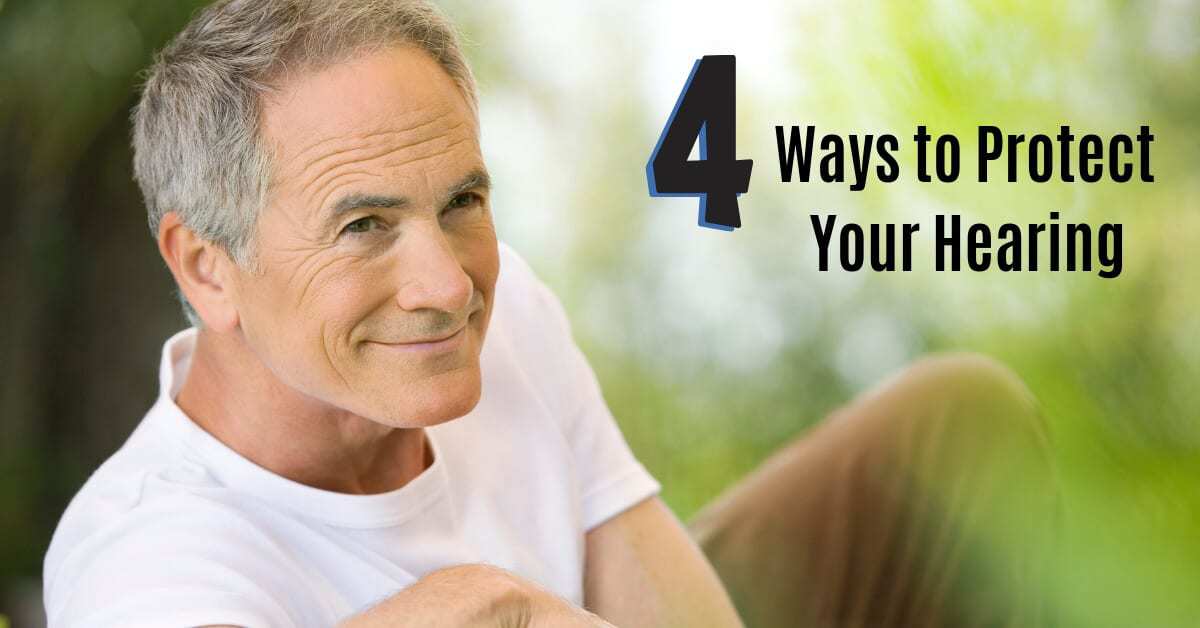The sounds in your life help you connect to the world around you, which is why it is important to preserve your hearing. However, many people are unknowingly exposed to situations that may harm their hearing. Noise-induced hearing loss (NIHL) is one of the most common types of hearing loss – and unlike other types of hearing loss, it is preventable.
Your risk of NIHL depends on how loud the noise is, how close you are to it, and how long you’ve been exposed to it. Eighty-five decibels (dB), the average sound of a hand-saw, can damage hearing permanently if you are exposed to it for 8 hours straight. On the extreme end, a rock concert can get as loud as 120 dB, which is about as loud as a chainsaw. Imagine listening to the sound of a chainsaw for 2 hours, then demanding an encore. This level of noise exposure can damage your hearing in just 2 minutes.
Consistent exposure to loud noise damages the sensitive cells in your inner ear, which prevents sound from reaching your brain. Hearing loss occurs as a result and when it arrives, the damage is here to stay. What can we do to prevent this kind of damage to your ears? Here are four tips to protect your hearing!
Get regular hearing tests
For most of us, our last hearing test was administered when we were about a couple of hours old or as a routine check in elementary school. It’s a good idea to ask for a hearing test at your next physical and make it a regular part of your annual check-up. If your primary care provider doesn’t provide hearing tests, contact us at Hearing Wellness Solutions! We provide comprehensive hearing tests and recommend an annual test for adults aged 50 and older. If you’re a young adult, your hearing test results give your future hearing healthcare provider vital data which can be used to give you the most appropriate care, should you need it. By regularly monitoring the development of hearing loss, you are also in a good position to seek treatment as soon as you need it.
Always carry hearing protection
If you’re in a noisy environment, you can protect your ears by popping in a pair of earplugs. This reduces the impact of any sound exposure by 15-20dB, which can make all the difference. It’s a good idea to make a habit of putting foam earplugs in your bag before you go anywhere, as the need to use them can strike at the most inopportune times. Earplugs are available in our office, but people who are regularly exposed to noise when engaging in a specific leisure activity might consider custom ear plugs. Here are some situations which definitely call for hearing protection:
- Concerts or any type of loud performance
- Construction sites
- Noisy workplaces
- Airports or train and bus stations
- Lawn mowing or leaf blowing
- Auto racing
- Hunting or shooting
There are also plenty of apps available which monitor the sound around you, letting you know if the noise gets above 85db. By keeping an eye on noise while carrying a pair of earplugs, you will be ready for any noisy situation you may find yourself in.
Practice safe listening
Be aware of the volumes when you are listening to your music when using earphones. Experts recommend not playing music any louder than around 60 or 70 decibels, which is a little bit louder than the volume of normal conversation. This enables you to listen for a while without doing any damage to your ears. If you are having difficulty discerning how loud is too loud, ask the person sitting beside you if they can hear your music. If they can, you need to turn it down.
Your ears need time to rest and recover, so it’s also important to take breaks after an extended period of listening. Follow the 60/60 rule – listen at around 60% of the volume for just 60 minutes at a time.
Use Technology Wisely
It’s wise to cap the volume on your phone at 60%, which will stop you from absent-mindedly turning up the volume too much. You can usually achieve this in the phone settings. If you have young children, look into parental controls to make sure that volumes are capped on your kids’ devices.
Also, consider the quality of your headphones or earbuds. Many people use the cheapest earbuds they can find, but these distort sound quality and you’re more likely to turn up the volume even more to compensate for the noises around you, especially when out. Consider investing in a pair of earbuds that provide good quality sound with good bass response. The wisest investment might be in noise-cancelling earphones, which reduce the noise around you, helping prevent you from turning the volume up too high.
Visit Us at Hearing Wellness Solutions
Protecting your hearing is a crucial part of optimal hearing health. At Hearing Wellness Solutions, we provide custom hearing protection for all manner of activities. Reach out to our friendly team today to learn more about options that can help you preserve your hearing.


